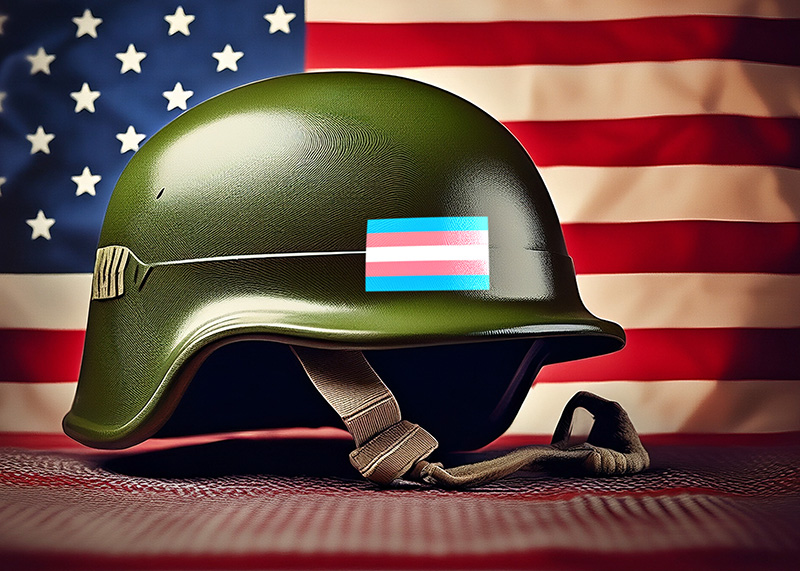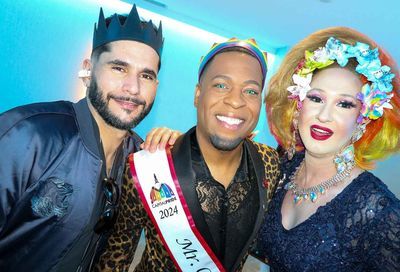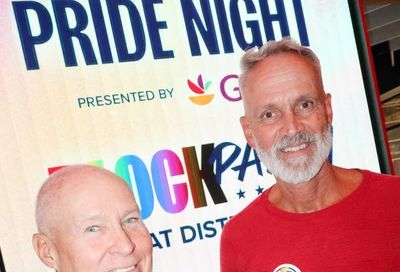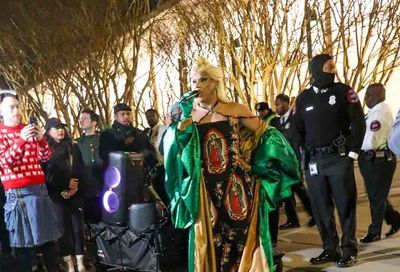South Carolina students sue state over its anti-LGBTQ health education law
Lawsuit claims education curriculum singles out LGBTQ students and violates their right to equal protection

A group of LGBTQ students and supportive organizations has sued the state of South Carolina over a law that prohibits public school health education courses from including any discussion of homosexuality or same-sex relationships — except in the context of sexually transmitted diseases.
Such laws, known as “no promo homo” laws, effectively gag teachers from mentioning LGBTQ individuals or divergent sexual orientations in a positive or even neutral light — although teachers who push negative portrayals of, or stereotypes about, LGBTQ people are allowed to do so without censorship.
Five other states — Alabama, Mississippi, Louisiana, Oklahoma, and Texas — have similar “no promo homo” laws in place.
The lawsuit, filed by Lambda Legal and the National Center for Lesbian Rights, challenges South Carolina’s law on the grounds that it violates the Equal Protection Clause of the Fourteenth Amendment to the U.S. Constitution by discriminating against students who are LGBTQ.
The plaintiffs in the case are the student organization Gender and Sexuality Alliance, an organization of high school students at a public magnet school in the Charleston County School District, as well as the Campaign for Southern Equality and the South Carolina Equality Coalition, on behalf of their members who are public school students in the state.
LGBTQ advocates maintain that by barring instructors from acknowledging non-heterosexual relationships or behavior, South Carolina’s law singles out LGBTQ students for negative treatment and punishes teachers who attempt to create more affirming spaces in their class for LGBTQ students by threatening them with termination.
They believe their claims are bolstered by a recent opinion by South Carolina Attorney General Alan Wilson (R) that suggests that courts would find the “no promo homo” law unconstitutional.
See also: Arizona Republican pulls her sex ed bill after criticism that it’s “anti-LGBTQ”
“LGBTQ kids at our school — and every school in South Carolina — just want to feel safe, respected, and equal to other students in the classroom,” Eli Bundy, a sophomore who serves as president of the Gender and Sexuality Alliance, said in a statement. “This discriminatory law treats LGBTQ students like we are outsiders in our own community, and that we aren’t equal to our peers. School should be a safe place for all students to be treated fairly and equally.”
Jeff Ayers, the executive director of South Carolina Equality, noted in a statement that the law banning LGBTQ topics from being discussed in school was enacted in 1988 as a provision of the Comprehensive Health Education Act. He said that the law had the “express and singular purpose of voicing moral disapproval of non-heterosexual people,” and “serves no state purpose at all.”
“This statute attempts to, at best ignore, and at worst to completely stigmatize young people who identify as LGBTQ in South Carolina and it must be struck down,” Ayers said.
The lawsuit drops as other states, such as Utah and Arizona, have repealed their “no promo homo laws” in the face of criticism in recent years. LGBTQ advocates had successfully argued — both in the courts and the state’s respective legislatures — that the laws unfairly restricted teachers’ First Amendment rights and might have contributed to bullying because teachers feared intervening on behalf of LGBTQ students, lest they be accused of promoting homosexuality.
“This discriminatory law is archaic, outrageous, and profoundly damaging to LGBTQ students, treating them as pariahs,” Peter Renn, counsel for Lambda Legal, said in a statement. “It should come as no surprise that where the government stigmatizes a group of students as ‘unmentionable,’ it risks breeding a school environment hostile to LGBTQ students, with more harassment and abuse in classrooms, hallways, and locker rooms.”
“The state law sends a message to students that ‘homosexual relationships’ are so shameful or dangerous that they can only be discussed in a negative context,” Julie Wilensky, a staff attorney at the National Center for Lesbian Rights, added. “This contributes to a hostile school climate in a state where nearly 90% of LGBTQ middle and high school students regularly hear homophobic remarks from other students.”
“Every young person in South Carolina — including those who are LGBTQ — deserves an equal opportunity to learn and to thrive. But the current anti-LGBTQ curriculum law both stigmatizes LGBTQ youth and denies them access to critical information about their health,” the Rev. Jasmine Beach-Ferrara, the executive director at the Campaign for Southern Equality, said in a statement. “The law sends a chilling signal to LGBTQ youth, and it’s long past time to strike it down.”
Read more:
Virginia becomes first Southern state to pass an LGBTQ nondiscrimination law
Supreme Court to rule on anti-gay discrimination by taxpayer-funded foster care agencies
California congressman introduces bill to offer a third gender marker option on U.S. passports
Support Metro Weekly’s Journalism
These are challenging times for news organizations. And yet it’s crucial we stay active and provide vital resources and information to both our local readers and the world. So won’t you please take a moment and consider supporting Metro Weekly with a membership? For as little as $5 a month, you can help ensure Metro Weekly magazine and MetroWeekly.com remain free, viable resources as we provide the best, most diverse, culturally-resonant LGBTQ coverage in both the D.C. region and around the world. Memberships come with exclusive perks and discounts, your own personal digital delivery of each week’s magazine (and an archive), access to our Member's Lounge when it launches this fall, and exclusive members-only items like Metro Weekly Membership Mugs and Tote Bags! Check out all our membership levels here and please join us today!























You must be logged in to post a comment.